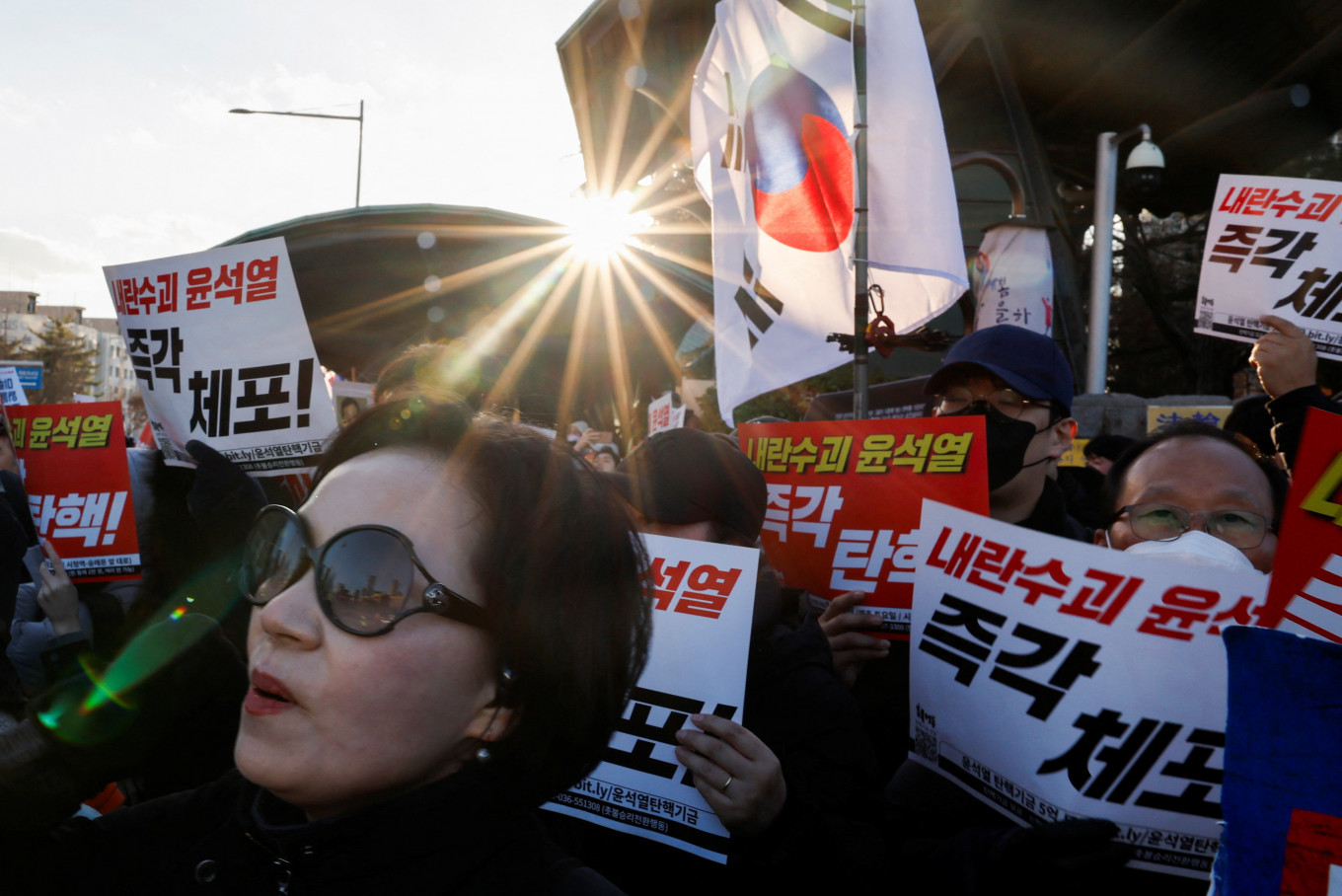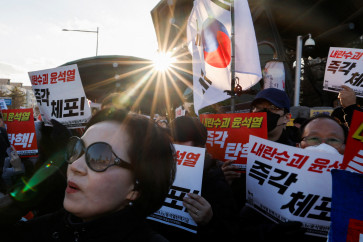Popular Reads
Top Results
Can't find what you're looking for?
View all search resultsPopular Reads
Top Results
Can't find what you're looking for?
View all search resultsSouth Korea's impeachment battle is democracy in action
Yoon’s removal would serve as a global example of how democracies can and should deal with those who abuse the privileges of incumbency.
Change text size
Gift Premium Articles
to Anyone
Y
oon Suk-yeol’s latest political gambit undoubtedly did not unfold as he expected. After abruptly declaring martial law on Dec. 3, South Korea’s scandal-plagued president was forced to lift the order within hours in the face of public protests and legislative opposition. He now faces an impeachment motion filed by the opposition Democratic Party, which has condemned his “insurrectionary behavior.”
As of this writing, the opposition is eight votes shy of what it needs to oust Yoon. But given the artful design of South Korea’s 1987 constitution and the country’s recent experience with impeachment, the opposition has an advantage, and it stands on firm legal ground. Yoon’s removal would serve as a global example, in stark contrast to the United States, of how democracies can and should deal with those who abuse the privileges of incumbency.
A South Korean president can be impeached for violating “the Constitution or other laws in the performance of official duties.” While a simple majority in the National Assembly can propose an impeachment bill, it must then be approved by a two-thirds supermajority. As in the US, the constitution limits the effect of impeachment to removal from office, and expressly leaves open the possibility of a criminal prosecution. But unlike in the US, a Korean president who faces impeachment immediately passes his or her duties to the prime minister. And in another departure from the American model, the impeachment motion then goes to the Constitutional Court for final approval.
This design has resulted in two successful impeachments in the last two decades. In 2004, president Roh Moo-hyun was impeached, but the Court held that the charges against him were inadequate to justify his removal. Roh went on to finish his term, but later committed suicide while facing corruption charges. Then, in December 2016, president Park Geun-hye was impeached, and this time the Constitutional Court confirmed the decision. In 2018, Park was convicted on criminal corruption and abuse-of-power charges and given a prison sentence (she was released in 2021).
South Korea’s experience with impeachment is rare. A recent study I co-authored shows that there were only 10 successful impeachments globally between 1990 and 2017. Yet South Korea has generated valuable precedents for others to follow. While some might argue that it is undemocratic to remove a democratically elected leader, the South Korean experience shows that impeachment can be an effective instrument for defending democracy.
South Korean legislators today know that they will not be breaking new ground if they impeach Yoon. Unlike impeachment in the US, the Korean process remains a credible, serious part of the country’s democratic politics. Legislators can be reassured by the fact that past decisions to remove a president have not been seen as merely partisan. Since the vote in the Park case was bipartisan, members of Yoon’s People Power Party cannot take refuge in simply voting along party lines. Precedent demands that they take their constitutional responsibility seriously, as others before them have done.
The Constitutional Court’s certification of their decision, in effect, checking the legality of their work, also serves an important function, shielding legislators from accusations of partisan impropriety. In 2004, the court made clear that while the National Assembly had a political and fact-finding role to play, judges would ultimately decide whether the facts presented met the constitution’s threshold for removal. Nor can legislators be accused of acting undemocratically. After all, a fresh election necessarily follows from a successful impeachment vote. Far from overruling the people, they are preventing the people’s trust from being abused.


















